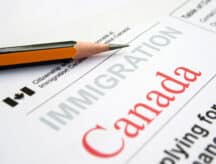Immigration Minister imposes higher levels of family reunification on Quebec
Federal immigration minister Marc Miller has chosen to take action regarding Quebec’s family reunification levels.
In a letter obtained by Radio Canada, Minister Miller—speaking to his Quebec counterpart Minister Christine Fréchette—detailed the measures that he would undertake to see that Quebec’s family reunification levels were up to the standards he felt were appropriate.
Sponsor your family for Canadian immigration
“I have decided to instruct my ministry to process permanent residence applications from family reunification applicants who have received a Quebec Selection Certificate (CSQ) issued by your ministry, i.e. the equivalent of approximately 20,500 applications” Miller wrote to Fréchette.
This decision by Miller represents a possible clashing of jurisdictions and comes with a backdrop of months-long talks between the Quebec provincial government and the federal government regarding the former’s tight immigration targets for yearly family reunification. Quebec’s family reunification targets are set at roughly 10,000 immigrants a year—an immigration cap Minister Miller described in his letter as “artificially low”—many of whom face far longer wait times than the federal service standards, to have their application processed.
In July of 2023, CTV News Montreal reported that family reunification in Quebec takes an average of 24 to 26 months—roughly 10-15 months longer than the federal government’s standards. Minister Miller affirmed his commitment to delivering decisions on these applications within usual federal deadlines—even if it means exceeding the immigration targets established by the Quebec government.
Why Quebec is different from the rest of Canada
Between 1971 and 1991, Quebec’s provincial government took multiple steps to gain increased control over immigration to its province—largely in a bid to preserve its francophone culture and character.
These changes culminated in the Gagnon-Tremblay-McDougall agreement, known more popularly as the Quebec-Canada Accord. Under this legislation, the province gained full selection process of immigrants to its borders; as well as the integration and francization of these individuals in the province.
To this day, Quebec is legally afforded more control over its immigration than any other province or territory in Canada. This makes Miller’s decision even more consequential, as it represents possibly the only time since the signing of the Quebec-Canada Accord, that the federal government has imposed an immigration directive on Quebec.
Quebec’s response to Miller’s decision follows this legal understanding, with Minister Fréchette’s office echoing the need for the federal government to respect Quebec’s jurisdiction over its own immigration: “The federal approach does not respect the will of the Quebec nation. This is unacceptable. […] Such a decision would have a considerable impact on Quebec's permanent immigration thresholds.”.
The Quebec immigration ministry added that it had already been considering avenues for family reunification independent of Minister Miller’s request—that would respect the special needs and decision making of Quebec’s immigration policies—after the office met with advocate groups for family reunification in the province in December.
- Do you need Canadian immigration assistance? Contact the Contact Cohen Immigration Law firm by completing our form
- Send us your feedback or your non-legal assistance questions by emailing us at media@canadavisa.com







